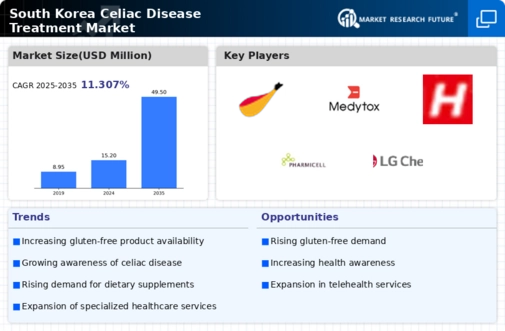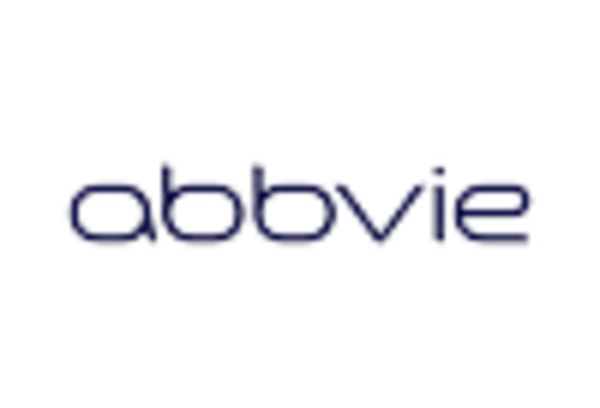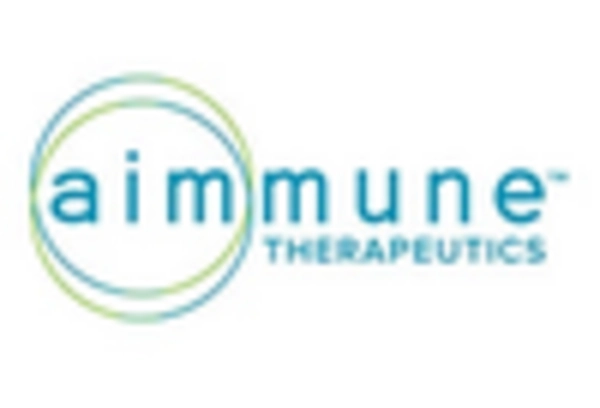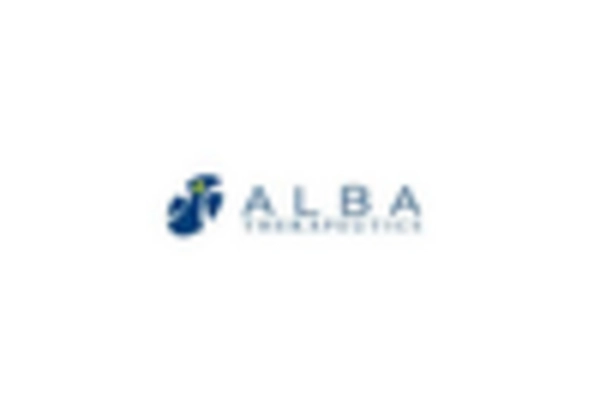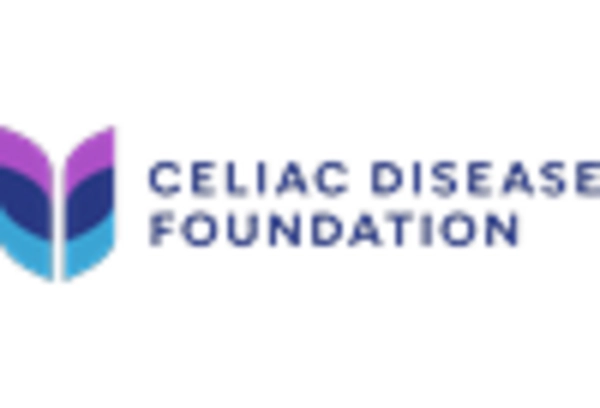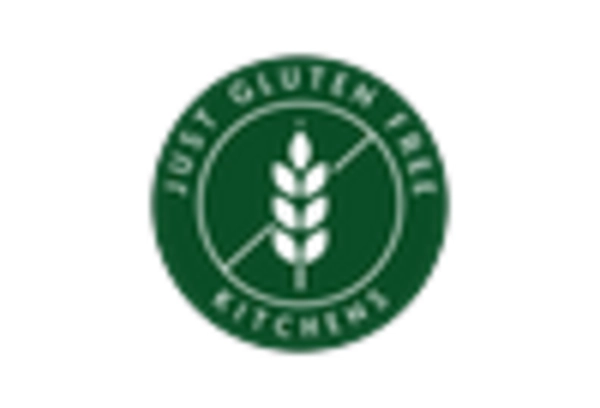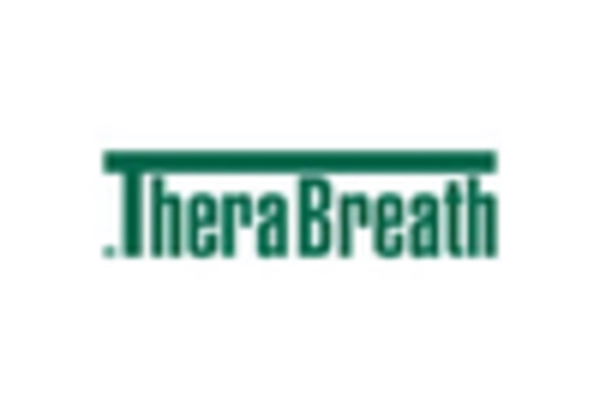Supportive Regulatory Framework
A supportive regulatory framework is essential for the growth of the celiac disease-treatment market. In South Korea, government initiatives aimed at promoting health and wellness have led to increased funding for research and development in the field of celiac disease. Regulatory bodies are also working to ensure that gluten-free labeling is standardized, which helps consumers make informed choices. This supportive environment encourages manufacturers to invest in the development of new treatments and gluten-free products. As regulations evolve to better support patients with celiac disease, the market is likely to see an influx of innovative solutions, further driving its expansion.
Rising Prevalence of Celiac Disease
The increasing prevalence of celiac disease in South Korea is a crucial driver for the celiac disease-treatment market. Recent studies indicate that the incidence of celiac disease has risen, with estimates suggesting that approximately 1 in 100 individuals may be affected. This growing number of diagnosed cases necessitates a corresponding increase in treatment options and healthcare resources. As awareness of the disease expands, more individuals seek medical advice, leading to higher demand for gluten-free products and specialized treatments. The celiac disease-treatment market is thus likely to experience significant growth as healthcare providers and patients alike respond to this rising prevalence, creating opportunities for innovative therapies and dietary solutions.
Advancements in Diagnostic Technologies
Advancements in diagnostic technologies play a pivotal role in shaping the celiac disease-treatment market. Enhanced testing methods, such as genetic testing and serological assays, have improved the accuracy and speed of celiac disease diagnosis. These innovations enable healthcare professionals to identify affected individuals more efficiently, leading to earlier intervention and management of the disease. As diagnostic capabilities improve, the number of diagnosed cases is expected to rise, further driving the demand for effective treatment options. The celiac disease-treatment market is likely to benefit from these technological advancements, as they facilitate better patient outcomes and foster a more informed patient population.
Growing Health Consciousness Among Consumers
Growing health consciousness among consumers is a notable driver of the celiac disease-treatment market. In South Korea, there is an increasing trend towards healthier eating habits, with many individuals seeking to avoid gluten for perceived health benefits, even among those without celiac disease. This shift in consumer behavior has led to a surge in demand for gluten-free products and treatments. Market analysts suggest that this trend could potentially increase the overall market size, as more consumers opt for gluten-free diets. The celiac disease-treatment market stands to benefit from this heightened awareness, as it aligns with broader health trends and encourages the development of diverse treatment options.
Increased Availability of Gluten-Free Products
The increased availability of gluten-free products is a significant driver for the celiac disease-treatment market. In South Korea, the food industry has responded to the growing demand for gluten-free options, resulting in a wider range of products being offered in supermarkets and restaurants. This trend is supported by consumer awareness and the rising number of individuals diagnosed with celiac disease. Market data suggests that the gluten-free food segment is projected to grow at a CAGR of around 8% over the next few years. As more gluten-free products become accessible, patients are likely to adhere more closely to dietary restrictions, thereby enhancing their quality of life and driving further growth in the celiac disease-treatment market.


